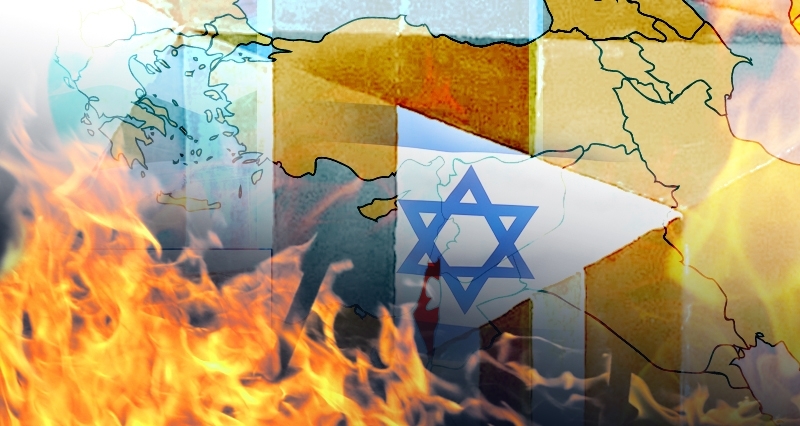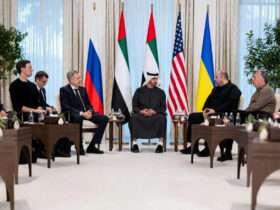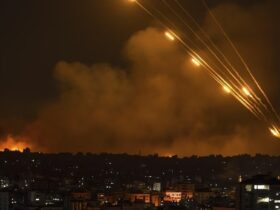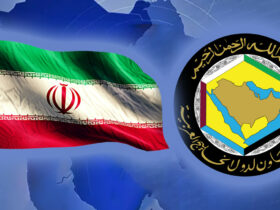Lebanon, Syria, Yemen, Iran, opportunism for Israel’s expansionist goals, and Netanyahu’s power impasse!
Lebanon, Syria, Yemen, Iran, opportunism for Israel’s expansionist goals, and Netanyahu’s power impasse!
By Adem Kılıç, Political Scientist/Writer
The war in Gaza has been temporarily halted by the show of force in Sharm el-Sheikh. However, it should be noted that this is not actually a peace agreement, but merely a ceasefire agreement.
This is because, although US President Trump announced that the process had moved to its second phase, there is no roadmap for the so-called second phase, which involves the deployment of an international military force in Gaza and the establishment of a governing structure that includes Tony Blair, who describes himself as ‘a Zionist, even though I am not Jewish’.
Israel, meanwhile, has carried out three large-scale air strikes on the Gaza Strip in the last week alone and, according to Hamas, has sabotaged the process at least four times, breaking the ceasefire.
Israel, using Hamas’s actions against the gangs in the Gaza Strip, which Israeli Prime Minister Netanyahu had previously said it had ‘armed,’ as a pretext, continued to undermine the process by exploiting the situation, despite Hamas’s announcement that it had handed over all the bodies of hostages in its possession.
Meanwhile, Israel’s aggression continues in other areas, particularly Lebanon and Syria.
Israel, which has never complied with any international agreement throughout its history, violated the ceasefire agreement with Lebanon brokered by the US and France in recent months and launched attacks on Lebanon. It also violated the 1974 agreement with Syria and declared that it would maintain its presence on Mount Hermon.
All these developments show that agreements made with Israel merely postpone problems and take their place in history as time bombs.
All these developments following the Sharm el-Sheikh agreement may push Netanyahu to re-engage his military and political strategies.
This is because Netanyahu believes that his constantly repeated rhetoric of ‘total victory’ will secure his political position.
Netanyahu’s move this week to bring forward the Israeli elections scheduled for November 2026 can also be interpreted in this light.
Hezbollah in Lebanon, Houthi tensions in Yemen and Iran
If Israel’s attacks on Gaza cease completely, Netanyahu could shift Israel’s focus to Lebanon first before the elections.
Amid discussions about Hezbollah’s disarmament process, Netanyahu will not hesitate to use this situation for a new offensive.
The clashes with the Houthis in Yemen are, according to Israel, entirely shaped by Iran’s regional influence, and Israel has still not been able to exert the desired level of pressure on the Houthi group, despite US support.
The front with the widest regional impact is undoubtedly Iran.
During the 12 days of fighting in June, US intervention and the targeting of nuclear facilities exposed the fragile balances in the region.
During this period, Netanyahu convinced the US for the first time to enter the war on Israel’s side, and targets in Iran were struck by the US.
Iran’s armed forces are currently on high alert, and Netanyahu could find various pretexts to restart the war if he chooses.
A potential conflict between these two regional powers would undoubtedly be more extensive this time, bringing devastating consequences that would affect not only Israel and Iran but all neighboring countries.
Ceasefires with Israel are time bombs for the region
All these developments show that the ceasefire achieved in Gaza is only offering a temporary respite.
Considering that Israel still views developments in Lebanon, Syria, Yemen and Iran as opportunities for its expansionist goals, that Netanyahu needs this to remain in power, and that Israel has never adhered to any agreement it has signed throughout its history, it is clear that the future of the region is actually far from the rosy picture being painted.
At this point, international powers should no longer be content with mere negotiations and must take concrete steps to preserve peace and stability in these areas.
After all, the ceasefires achieved with Israel are nothing more than ‘time bombs’ for the region.















Leave a Reply